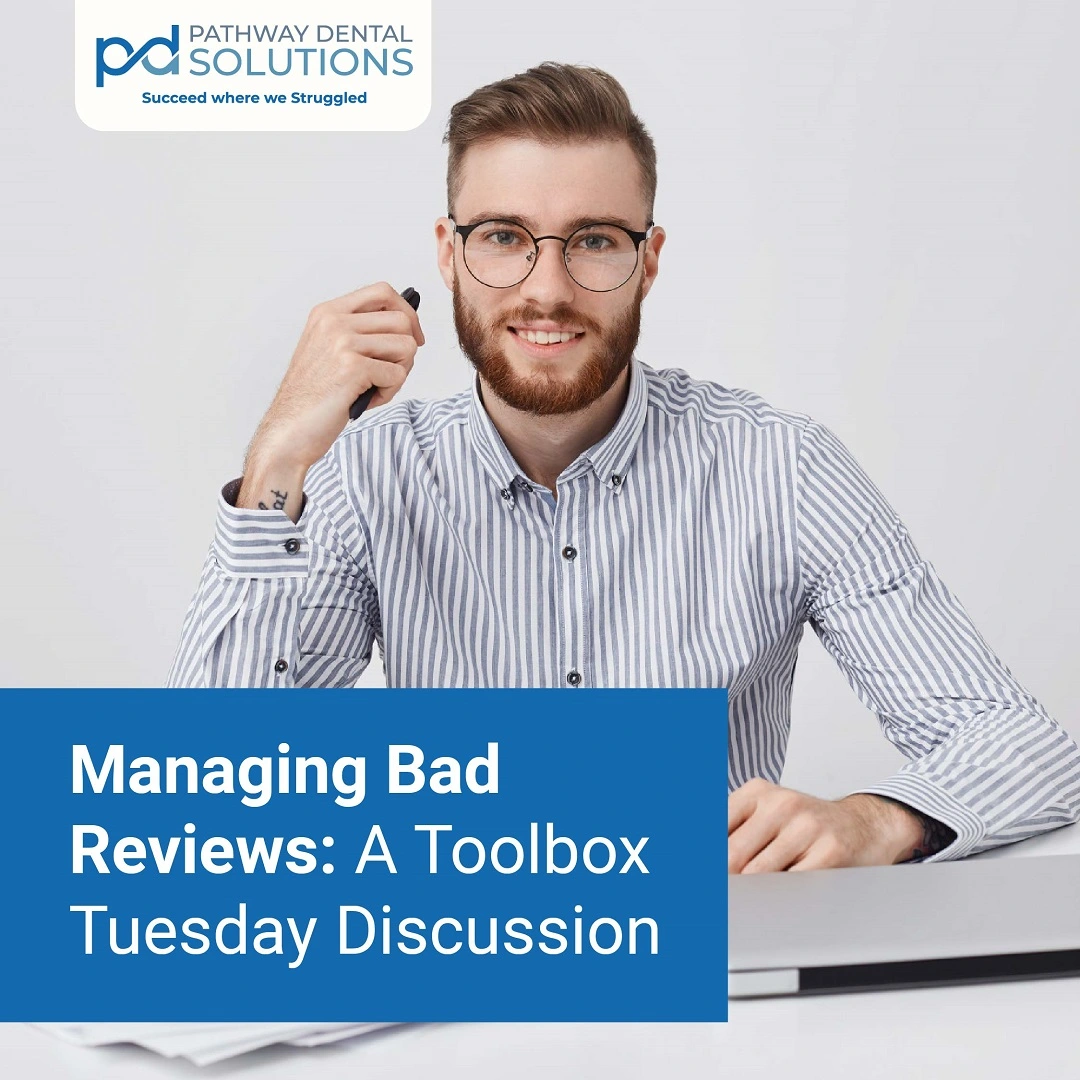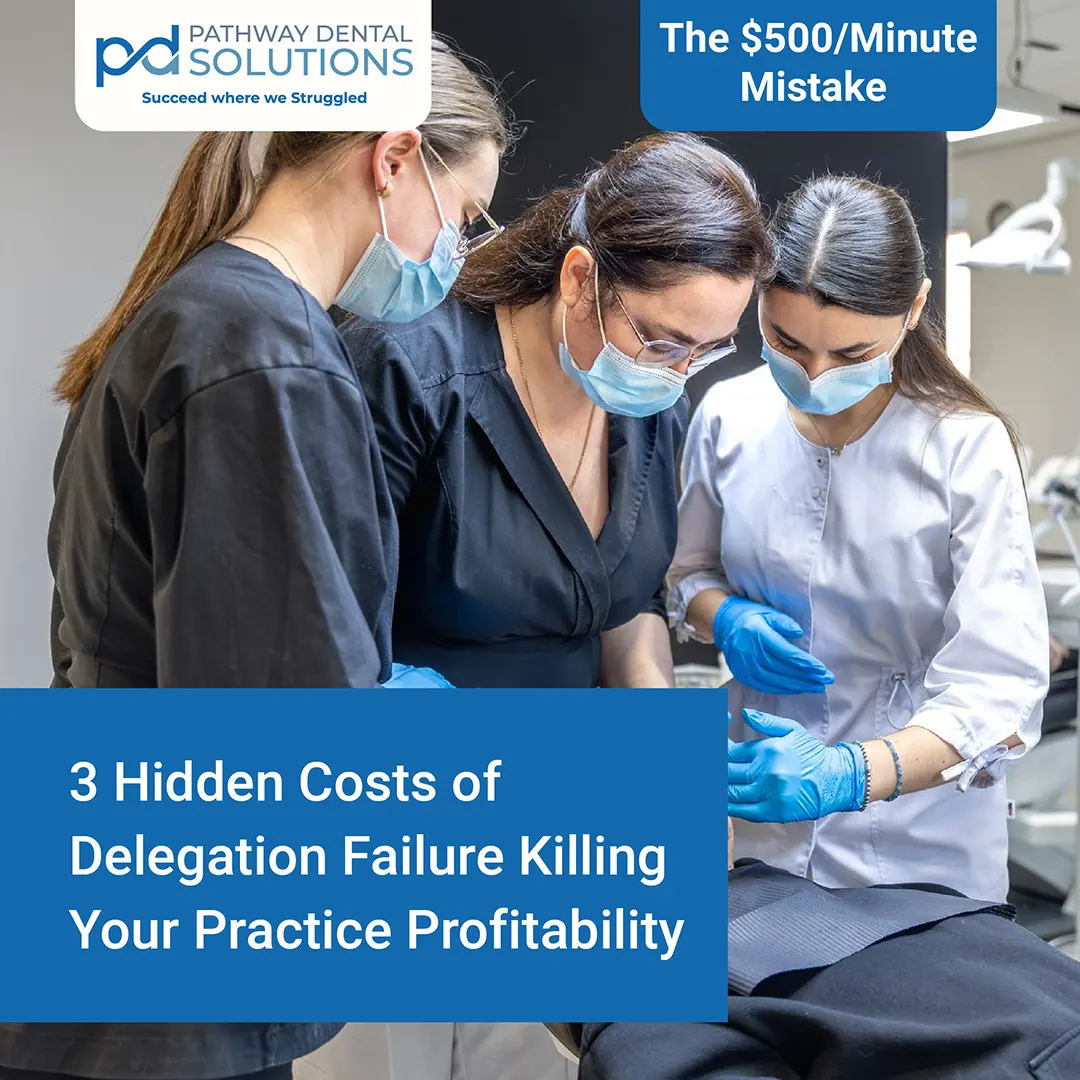
Welcome to our blog post, where we delve into the insightful discussion from our recent Toolbox Tuesday meeting. This week, our team addressed the topic of bad reviews and how to respond to them effectively. In today’s digital age, online reputation management is crucial for the success of any business, and our dental practice is no exception.
Embracing the Inevitable
The team unanimously agreed that bad reviews are inevitable. Even the most seasoned professionals encounter dissatisfied patients from time to time. Rather than dwelling on the negativity, the focus should be on managing our online reputation and turning negative experiences into positive growth opportunities.
Learn about The Importance of Addressing Patient Complaints and Suggestions in a Dental Practice.
Responding to Every Review
We understand the pivotal importance of responding to every review—both positive and negative. When addressing negative feedback, it is essential to provide factual information to address any false claims or misunderstandings. Our team recognizes that simply ignoring negative reviews can have a detrimental impact on potential patients who read these reviews and gauge our professionalism based on our responses.
Navigating the Limitations
During the discussion, the team explored the limitations on what can be shared in response to reviews. Confidentiality and privacy are paramount, so we must refrain from confirming specific details about a patient’s visit or treatment. Instead, we focus on expressing our policies clearly and inviting patients to review their records or consult with their new dentist if necessary. By taking this approach, we ensure integrity while maintaining professionalism.
Taking the High Road
One key point emphasized throughout the discussion was the importance of taking the high road in response to bad reviews. We firmly believe in the principle of showcasing professionalism and empathy in our interactions. Our team strives to diffuse tension gracefully and demonstrate our commitment to the well-being of our patients.
Financial Complaints: The Most Common Challenge
Financial complaints surfaced as the most common type of bad reviews during the conversation. The team acknowledged that financial matters are incredibly sensitive and can significantly impact patients’ experiences. Effective communication plays a pivotal role in addressing these concerns. By maintaining open lines of communication with our patients regarding finances and insurance issues, we seek to alleviate unnecessary distress and enhance their overall experience.
Feedback: A Catalyst for Improvement
The team recognized that negative reviews are valuable learning opportunities. As mentioned by one of our speakers, “There’s always something that we could’ve done better.” Continuous improvement is at the heart of our practice, and constructive feedback from patients serves as a catalyst for positive change. We encourage patients to share their experiences and suggestions openly, as it helps us evolve and refine our services.
United Front: Strength in Communication
In order to provide the best possible care, our team stressed the importance of maintaining a united front with patients. By backing each other up and addressing concerns together, we demonstrate solidarity and a commitment to resolving any issues. Patients appreciate a cohesive team that prioritizes their well-being, both in front of them and behind the scenes.
Word-of-Mouth and the Power of Reviews
Our discussion also touched upon the significance of word-of-mouth recommendations and the role of online reviews in influencing potential patients. We acknowledged that people are more likely to share negative experiences than positive ones—a fact that highlights the importance of actively managing our online reputation. Offline conversations can also hold sway, as dissatisfied patients may express their dissatisfaction within their immediate circles. By actively addressing online reviews, we can mitigate potential damage to our reputation and promote the positive experiences shared by our patients.
Skepticism towards Perfect Ratings
Perfect 5-star ratings without any negative reviews raise skepticism amongst both our team members and patients. Our speakers mentioned the possibility of manipulation or fake reviews in such instances. We believe that an honest representation of our practice includes a mix of reviews, showcasing our commitment to transparency and genuine patient experiences.
Conclusion: Reflecting and Growing
In closing, our Toolbox Tuesday discussion shed light on the importance of managing bad reviews effectively. We emphasize the need to respond to every review, actively address concerns, and maintain professionalism in all interactions. While financial complaints may be common, we remain dedicated to open communication and finding resolutions. Feedback from our patients propels our continuous growth, and we encourage everyone to share their experiences and suggestions.
Stay tuned for our next episode, where we will delve deeper into patient suggestions and how they shape our practice on the journey towards excellence in dental care.



